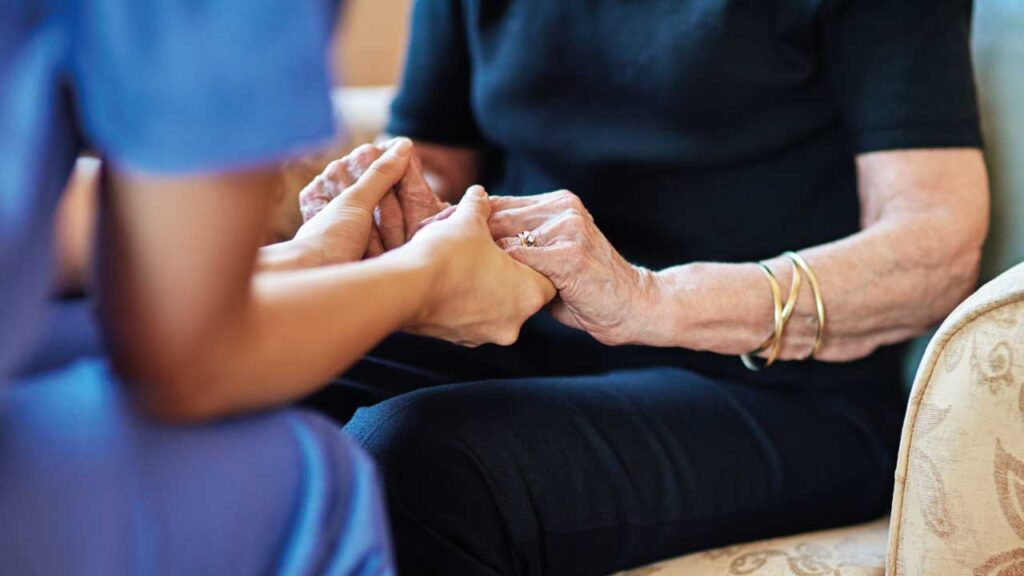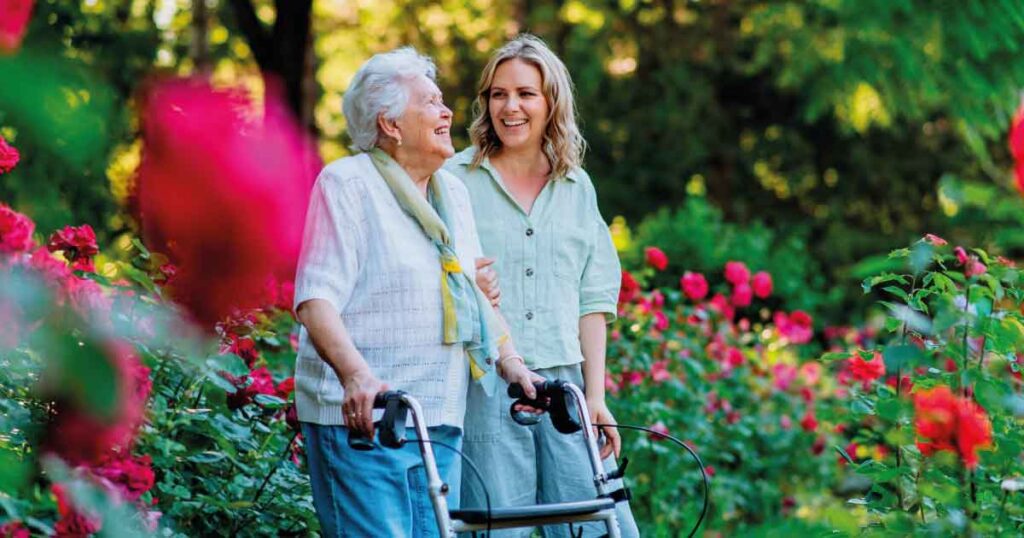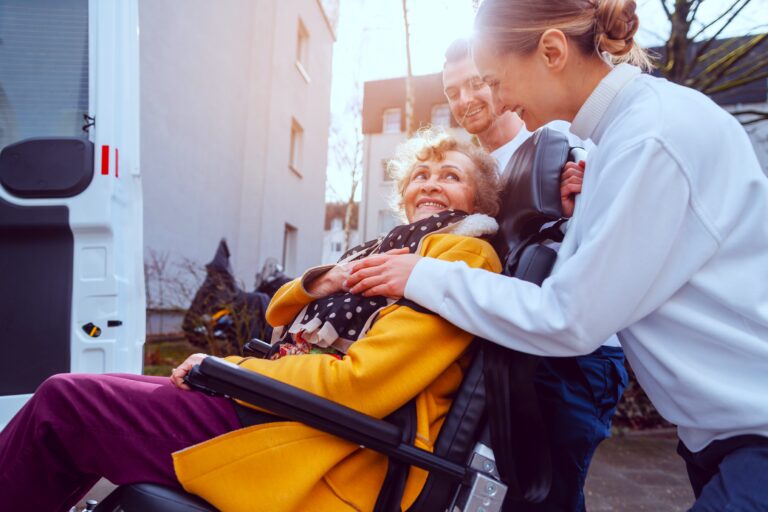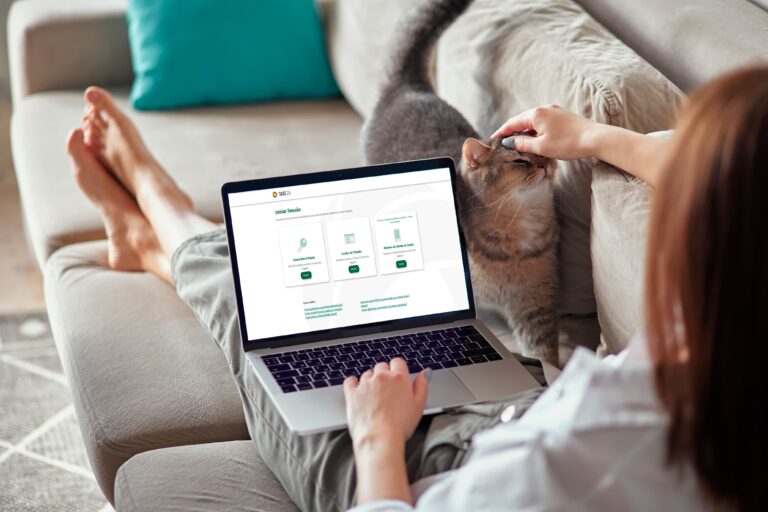Every day, thousands of people dedicate their time and energy to caring for someone with mobility difficulties, chronic illnesses or physical limitations. However, this care goes far beyond a simple task: it is an emotional and physical commitment that requires courage, patience and dedication. Find out more about this fundamental but often invisible role.
Find out how it works, how to request it and what other useful features you can find on the SNS 24 Portal and the SNS 24 App.
What is the Informal Caregiver Status?
Created precisely to recognize the importance of this role, the Statute for Informal Car ers guarantees the rights and support of carers who help people with dependencies on a daily basis, whether due to age, illness or disability. It offers a series of benefits and also defines duties that make the task fairer and more balanced.
What are the rights of the informal caregiver?
Informal caregivers duly recognized by Social Security have access to a series of rights aimed at ensuring their well-being and ability to care:
- Support and training. They can receive specific training and support from health professionals, from the evolution of the cared-for person’s illness to the best practices for providing care
- Psychological support. This right extends even after the death of the person being cared for, guaranteeing emotional support at a delicate time
- Rest periods. To prevent burnout, caregivers are entitled to annual breaks, which can be adjusted to their needs
- Student worker scheme. If they are attending an educational institution, they have access to the benefits of this scheme
- Support allowance. A financial benefit for primary caregivers, subject to certain income conditions (explained below)
- Specific intervention plan (SIP) . This document is drawn up in conjunction with health and social security professionals and details the needs of the caregiver and the dependent person.
- Teleworking and flexible working hours. Non-primary caregivers can request teleworking, as long as it is compatible with their duties.
What are the duties of the informal caregiver?
Being an informal caregiver is not just a right; it also entails responsibilities:
- Ensuring the well-being of the person being cared for. This includes daily support, administering medication, promoting autonomy and maintaining a safe and comfortable environment
- Provide permanent care. The caregiver must ensure that the person being cared for receives the necessary care in terms of health, food and hygiene
- Collaboration with professionals. The caregiver must inform the services of any relevant changes and take part in the planned training sessions
- Compliance with legal obligations. It includes informing Social Security of changes such as the end of cohabitation, death of the person being cared for or withdrawal from the status
- Support socialization. The caregiver is also responsible for encouraging the person being cared for to remain socially active, where possible
- Continuous monitoring. The person being cared for must be constantly monitored, regardless of whether they are at home or in some kind of institution.

Who can be considered an informal caregiver?
An informal caregiver can be:
- Family member: a spouse, sibling, child or other family member up to the 4th degree of the straight or collateral line
- Non-family caregivers: the novelty introduced by the law in 2024 is the possibility of non-family caregivers, such as friends or neighbors, obtaining this status, as long as they have the same tax address as the person being cared for.
What are the requirements and conditions for becoming an informal caregiver?
To be recognized as an informal caregiver, the applicant must:
- Be of legal age
- Legally resident in Portugal
- Be in good health to be able to care for the dependent person
- Be a relative of the person being cared for or, in the case of non-family carers, have the same tax address as the person being cared for.
In addition, to be a primary caregiver, the person must live with the person being cared for and provide care on a permanent basis.
Formal and informal care: what's the difference?
The main difference between a formal and informal caregiver lies in the relationship with the person being cared for. The formal caregiver is a professional who works in health institutions or care services and is paid for it. The informal caregiver, on the other hand, is someone from the family or a friend who takes care of someone without pay, on a voluntary basis.
And main and non-main informal caregiver?
The distinction between main and non-main informal caregivers has to do with the intensity and permanence of the care provided. The
How to apply for Informal Carer Status?
To apply for the status, the caregiver must go to Social Security, either online or in person. The process is simple, but requires the person being cared for to give their consent and provide a medical statement proving their dependency.
How do I apply for the main informal carer's allowance?
The subsidy is applied for when the caregiver formalizes the request for recognition of the status. The informal caregiver support allowance is awarded to those who meet the requirements, such as being the main caregiver and not receiving any remuneration for the care provided.
How much is the informal carer's allowance and how is it calculated?
The monthly allowance for main informal caregivers depends on the household’s means test. In 2025, the conditions are considered to be met if the household’s reference income is less than 1.3 times the IAS, or 679.25 euros.
The amount of the allowance is calculated by the difference between the household’s income and the value of the IAS, which this year is 522.5 euros. For example, if the monthly income is 300 euros, the allowance will be 222.5 euros (522.5€ – 300€).
The allowance can be increased if the main informal carer is registered with the Voluntary Social Security Scheme. See the Practical Guide – Informal Caregiver Statute.




